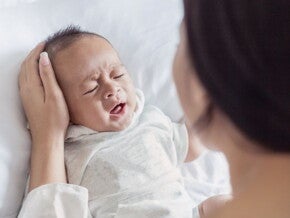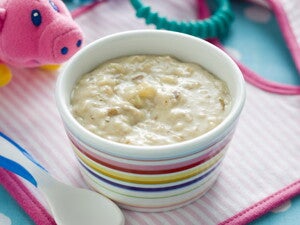
Baby Ear Infection
One of the most common infections in children between six months and three years is a middle-ear infection called otitis media.
Ear infections are common in young babies and children. While your baby may be irritable for a few days, middle-ear infections usually resolve themselves with minimal intervention. Outer ear-infections may require antibiotics, always seek advice from your doctor if you think your baby may have an ear infection.
What causes ear infections?
Middle ear infections may be caused by either a bacteria or virus which enters the middle ear from the throat. Young babies and children get more ear infections than adults as the tube which connects the two is smaller and prone to blockage and swelling. This blocked liquid becomes a breeding ground for bacteria causing the middle ear infection. The accumulation of fluid may cause a pressure build up, swelling and pain.
Symptoms of middle ear infection
There can be several signs and symptoms indicating your baby might have an ear infection. Some of the symptoms listed below may also be an indication something else is wrong so it’s never safe to self-diagnose. Make sure you get advice from your GP.
- Tugging at the ear – If your baby is pulling or tugging at their ear it can be a sign of ear trouble, but not always. They would be irritable as well.
- Flu-like symptoms – If your baby has a fever or a cold and is restless in their sleep, they may be suffering from an ear infection. In some cases, appetite might also decrease.
- Fluid discharge – In some cases a thick yellow fluid may drip from the ear. This occurs when the ear drums swells and tears, often referred to as a burst ear drum. Although it sounds scary, children often feel better once this happens and the eardrum normally heals itself without treatment.
Glue ear can result if fluid remains in the ear canal. The blocked canal can cause hearing problems and speech delay.
How are ear infections treated?
A middle ear infection often resolves itself with no treatment. Even a burst ear drum will heal over time, often without medication. Antibiotics generally aren’t required for most ear infections, however your doctor will decide this.
If an ear infection continues beyond 2-3 days or if your baby’s ear infection becomes recurrent, speak with your doctor again to ensure they’re getting the right care and treatment.
What can I do to prevent ear infections from occurring?
As the main cause of ear infections are usually a harmless cold, they can be hard to avoid! Maintaining good hygiene is important. Washing hands well, coughing into your elbow, and keeping your baby’s nose and throat as clear as possible when your baby has a cold may help. Using saline (salty water) to clear the nasal passages as well as drinking plenty of fluid are also great ideas.
This information should never replace your usual medical care or advice. If you are worried about your baby or toddler please talk to your trusted healthcare professional.
Sources
Health Direct website “Ear Infections”. Available at https://www.healthdirect.gov.au/ear-infection.
Raising Children website “middle ear infection”. Available at https://raisingchildren.net.au/babies/health-daily-care/health-concerns/middle-ear-infection.





